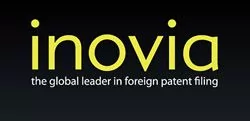Article by Jeff Shieh, Senior Patent Attorney, inovia
Dr. Michael Blaine Brooks, of the Law Office of Michael Blaine Brooks, delivered a presentation on "Advancing US Cases via the PCT-Patent Prosecution Highway" to the Ventura County (CA) Bar Association recently. He was kind enough to share the material with inovia and we are pleased to have him author an article for the Foreign Filing Blog this week.
Two very helpful things were announced this summer by the USPTO: (1) as of May 25, 2010, the petition fee for the Patent Prosecution Highway (PPH) was waived, and (2) as of June 1, 2010, the PCT Patent Prosecution Highway (PCT-PPH) includes the Korean Intellectual Property Office (KIPO).
This is good news. Now, an International Search Report (ISR) and written opinion that finds one or more claims of a PCT "international" application patentable can be used to advance a US counterpart non-provisional application in the USPTO's examination queue.
However, there are a couple of restrictions:
(a) the claims of the US non-provisional patent application must correspond to, or be narrower than, the claims found patentable in the PCT application.
(b) the PCT International Search Authority (ISA) must be the European Patent Office (EPO), KIPO, or the Japanese Patent Office (JPO).
Presently, KIPO is selected as the ISA in about 30% of PCT applications originating from the US. In addition, KIPO is the least expensive ISA available to US PCT applicants. Moreover, it is fully competent to search all classes of US statutory subject matter (in distinction to the EPO, which won't search in classes such as those relating to business methods and certain types of software).
Unlike the USPTO and EPO (at times), KIPO also provides relatively timely ISRs. Applicants can expect a search report and written (patentability) opinion either: nine months from the filing of the PCT application without a Paris Convention priority document; or within about sixteen months of the PCT application's earliest Paris Convention priority date.
If only a subset of the PCT application's claims are found patentable by the EPO, JPO, or KIPO as the ISA, the US practitioner may consider conforming a previously filed counterpart US application via a preliminary amendment before filing the PCT-PPH request. A PCT Chapter II demand could be filed with amended claims, but the international preliminary examination report for the PCT-PPH request may not be available until 28 months from the PCT application's Paris Convention priority date.
The US practitioner should be mindful that "102(e)-like" references are not used in determining PCT patentability (although they may be specifically mentioned in the search report), and means-plus-function claims will be read more broadly by PCT examiners than those at the USPTO. So, while the PCT application extends prospective international patent rights and the PPH provides a process for advancing a corresponding US application, the PCT-PPH advancement process is not a full faith and credit process of US claim allowance. That is, a favorable ruling of patentability for at least one claim of the PCT application does not provide a basis for automatic allowance of the corresponding US case.
Michael Blaine Brooks, PhD, PE(EE), holds his JD from Pepperdine University School of Law and BS, MS & PhD degrees in engineering from UCLA. Dr. Brooks actively participates in furthering excellence in intellectual property practice as Adjunct Professor of Patent Law at Pepperdine, and a member of the Ventura County and the San Fernando Valley Bar Associations. He heads a private intellectual property law firm in the Greater Los Angeles area. (http://www.brooksiplaw.com/)
Click here to visit the Foreign Filing Blog and read other articles on the PPH.
The content of this article is intended to provide a general guide to the subject matter. Specialist advice should be sought about your specific circumstances.

